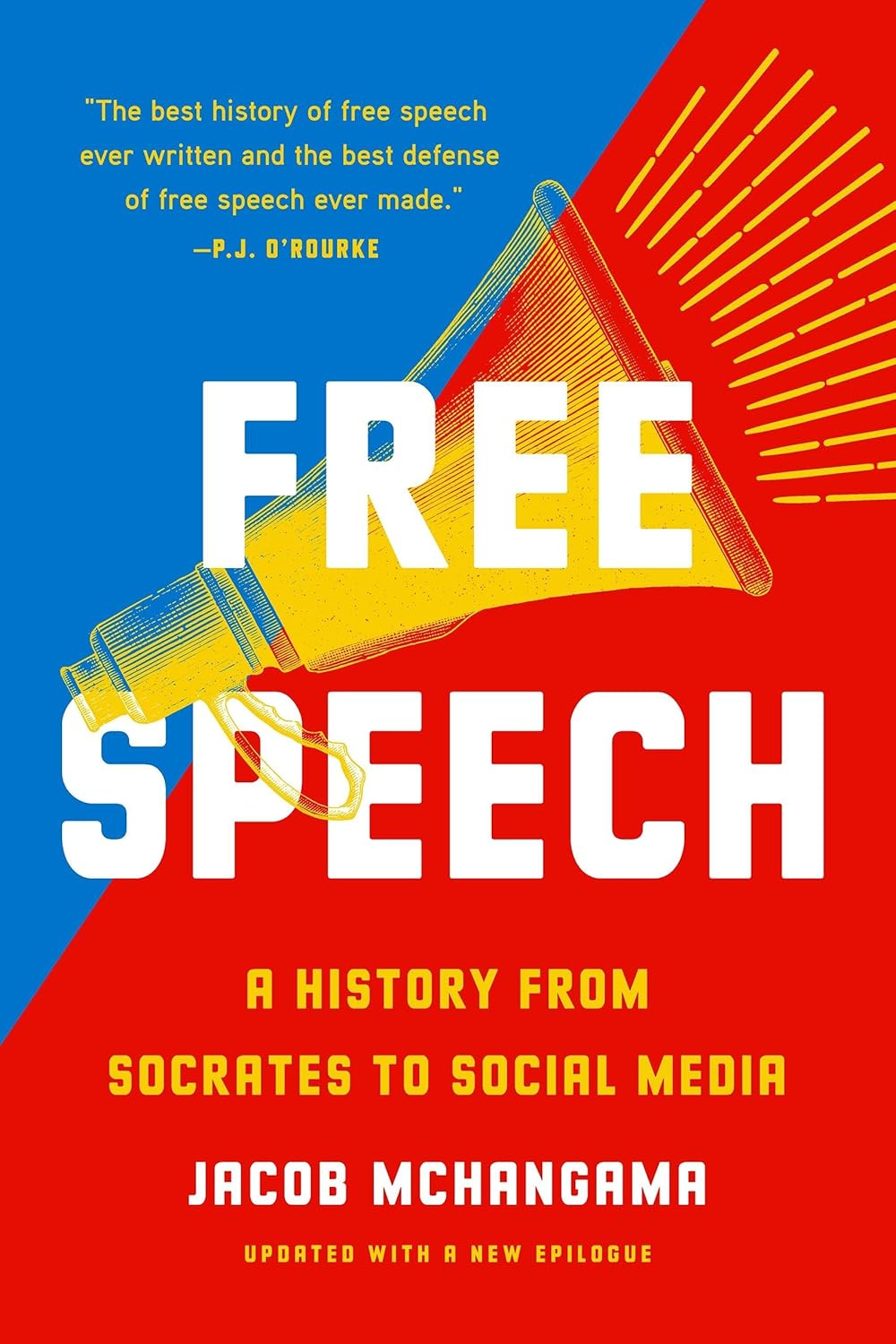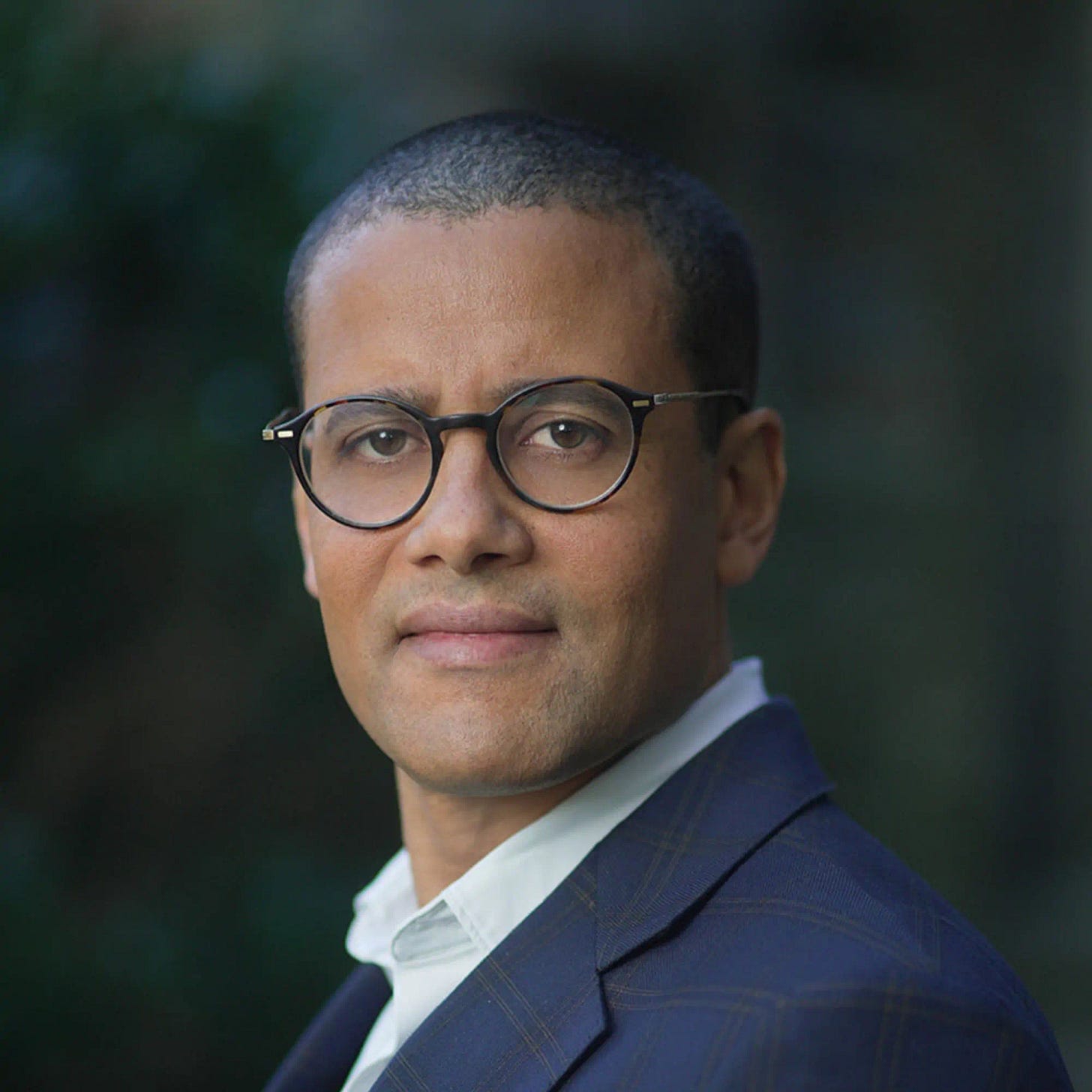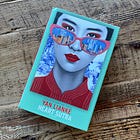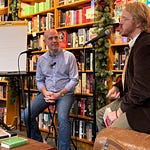In America today, you can say almost anything—until you do. From college campuses to social media feeds, company Slack channels to city council meetings, the tensions over free speech have scarcely seemed higher, at least in recent decades.
But amid the noise, how many of us actually understand the long arc of free expression: where it began, what sustains it, and why it might slip away?
Last month, I had the pleasure of interviewing one of the nation’s premier free speech experts, Jacob Mchangama, at Landmark Booksellers in historic Franklin, Tennessee. The occasion? Celebrating the paperback release of his extraordinary book, Free Speech: A History from Socrates to Social Media. Basic Books published the hardcover in 2022.

Jacob, a senior fellow at the Foundation for Individual Rights and Expression (FIRE), is the founder and executive director of The Future of Free Speech, a research center at Vanderbilt University, where he also serves as a professor.
Comprehensive and engaging, intellectually rigorous yet accessible, Free Speech invites us to see free expression as a rare and hard-won achievement in human history.
The Landmark event drew a lively and thoughtful crowd. A few of you wonderful readers were able to attend, which was fantastic; it was great connecting beyond the comments! Nadine Strossen—former president of the ACLU and now a senior fellow at FIRE—happened to be in nearby Chattanooga and changed her itinerary just to join us. She ended up introducing the event.
I’m now delighted to share the conversation between Jacob and me with the rest of you.
Jacob and I followed several of the trails he lays out in Free Speech, jumping across centuries and continents, from ancient Athens and Rome to modern Europe and America. The book’s sweep is vast, but the message is clear: Free speech is a fragile inheritance, hard-won and easily lost.
Most societies throughout history, Jacob shows, have leaned toward repression rather than liberty. The idea that individuals can speak freely without fear of state reprisal is a relatively new and rare development—and one that remains under constant threat.
While America has the strongest legal protections for speech in the world, the cultural consensus that sustains those protections shows worrying signs of strain.
“The U.S. has the most robust free speech protections of any country in the world,” Jacob said during the event. “But at the same time, you have this increasing push from different sides to regulate speech or limit certain kinds of expression—especially online. That’s a paradox I find deeply concerning.”
We discussed the disruptive nature of new media and the patterns of backlash they invite. Jacob drew a sharp historical analogy:
We often praise technologies like the printing press for spreading knowledge, and rightly so. But it also led to massive social upheaval—wars, schisms, violence. Social media is doing something similar: empowering voices while also accelerating polarization and misinformation. That’s not an argument for censorship; it’s an argument for building resilience in democratic culture.
Resilience formed an undercurrent in our conversation and runs through the book as well. Free speech isn’t self-sustaining; it requires cultural and civic reinforcement. It demands tolerance for dissent and discomfort, listening across lines, and protecting the rights of those with whom we strongly disagree—if for no other reason than that the power to restrict free speech is a boomerang with blunt edges.
“Throughout history,” Jacob reminded the Landmark audience, “it’s the people who didn’t have power—the heretics, the abolitionists, the suffragists—who depended on free speech to challenge the status quo. Once you limit speech, you don’t just silence the bad; you also risk silencing the necessary voices for change.”
The defense of free speech, as Jacob made clear both in our conversation and in the book, is not a partisan issue; it’s a civilizational one.
Free speech is one of the rarest and most fragile achievements of human civilization. It’s not something we can assume will always be there—it requires constant defense.
It’s easy to take free speech for granted. As someone who cares deeply about language, ideas, and the enduring power of words, I find Jacob’s message both sobering and inspiring. It reminds me that the liberty we exercise in print, on the page, or online has a history and a cost.
If you value free expression, please check out our conversation and get a copy of Free Speech. It’s an illuminating read about an essential subject.
Thanks for reading! Please hit the ❤️ below and share this post with your friends.
Not a subscriber? Take a moment and sign up. It’s free, and I’ll send you my top-fifteen quotes about books and reading. Thanks again!
While you’re here, take a look at these.










